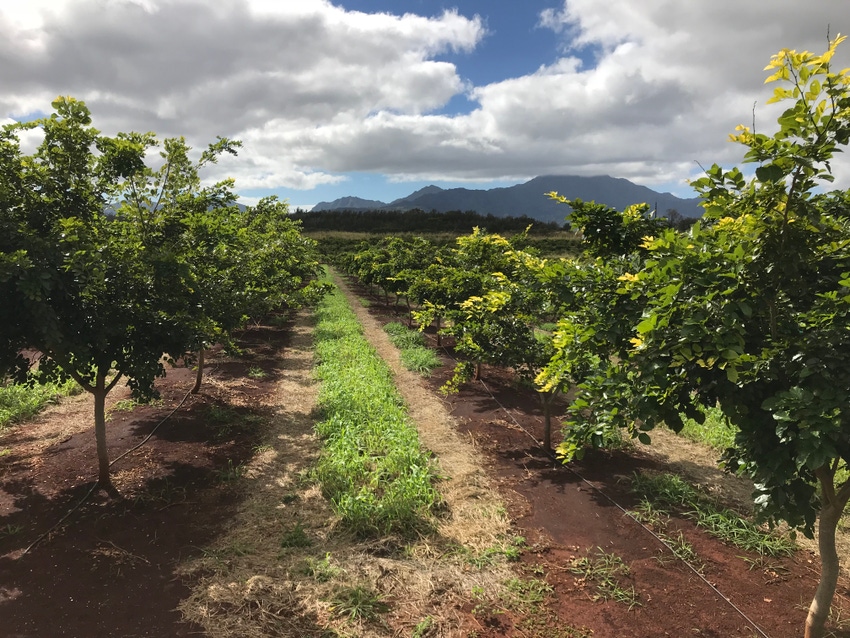TerViva raises $20m to drive product development, market expansion as company prepares regulatory submissions to FDA.

The seeds of a legume tree, pongamia beans can be processed into plant protein, livestock feed and high-oleic oil, according to an announcement from TerViva, an agriculture technology firm.
TerViva is commercializing the pongamia trees, which produce as much as 10-times the beans per acre as soy for the supply of plant protein, vegetable oil and biofuels. The company recently raised an additional $20 million in its first close of its Series D funding and current commitments.
According to the company, this latest round of investment was led by a diversified agricultural family office, Evans Properties, The Jeremy & Hannelore Grantham Environmental Trust and a group of Florida agricultural family offices, who join existing investors including the Elemental Excelerator, the Yield Lab, Astia Angels, Allotrope Ventures and Howard Fischer of Gratitude Railroad.
The new funds will allow TerViva to accelerate research connecting the pongamia bean’s functional properties to critical processing and product development partnerships that will demonstrate commercial viability of pongamia protein and oil.
These funds will also grow TerViva’s infrastructure to supply farmers with the company’s patented high-yielding oilseed trees in Florida and Hawaii, the company said.
Terviva sells farmers patented non-genetically modified cultivars of pongamia selected for their high yields and hardy growth. Farmers partner with TerViva to grow pongamia on abandoned agriculture lands with little to no fertilizers or pesticides, the company said, noting that it buys back the crop for processing into plant protein, livestock feed and high-oleic oil.
By cultivating high seed-producing trees and successfully removing compounds affecting taste, TerViva said it is the first company to make the ancient pongamia tree’s protein and vegetable oil yields accessible for food applications.
“Consumption of plant-based proteins and oils is growing rapidly, but the amount of arable land to grow these crops is increasingly limited,” said Naveen Sikka, founder and chief executive officer of TerViva. “We’ve developed a sustainable, market-driven approach for farmers to profit off marginal land by cultivating trees that can feed the planet. We look forward to building partnerships that will incorporate our supply of highly-sustainable pongamia protein and oil as food and feed ingredients.”
In Florida, TerViva is planting patented varieties of the pongamia tree where the citrus industry has dramatically shrunk and few alternative crops have emerged, the company said, while in Hawaii, the trees are being planted on former sugar cane lands on Oahu, Kauai, and Maui. TerViva has 150,000 trees under contract with existing customers that include several of the largest citrus farmers in Florida and will use funding to deliver an additional 200,000 trees in the coming two years.
TerViva explained that the pongamia tree produces a legume that is related to beans, peas and lentils and has been harvested for mostly medicinal uses for more than 1,000 years. As a plant protein, pongamia has excellent potential as a replacement for soy. Pongamia protein has strong gelling and emulsification properties and pongamia vegetable oil is similar to high-oleic acid vegetable oils.
TerViva said it has conducted studies utilizing pongamia protein as an animal feed ingredient with poultry and cows, with promising results emerging as it prepares for regulatory submissions with the U.S. Food & Drug Administration. As a new feed ingredient, the Association of American Feed Control Officials (AAFCO) would also need to approve an ingredient definition, which would be published in the AAFCO Official Publication.
TerViva board chairman Ron Edwards said, “TerViva will invest this Series D fundraising support alongside Florida’s citrus growers eager to revitalize fallow acreage and scale-up a sustainable, transparent oilseed supply chain. This will unlock numerous applications of the company’s intellectual property growing high-performing trees and processing beans in to nutritious food and feed products to meet a broad range of needs.”
Formed in 2010, TerViva is a Series-D agricultural technology company that produces pongamia trees with abundant oil and protein-rich beans, similar to soybeans. It provides patented high-yielding trees and offer proprietary bean processing to create sustainable food and fuel. TerViva uses pongamia to restore farmland to productive use, helping farmers feed people while taking care of the planet.
About the Author(s)
You May Also Like

.png?width=300&auto=webp&quality=80&disable=upscale)

